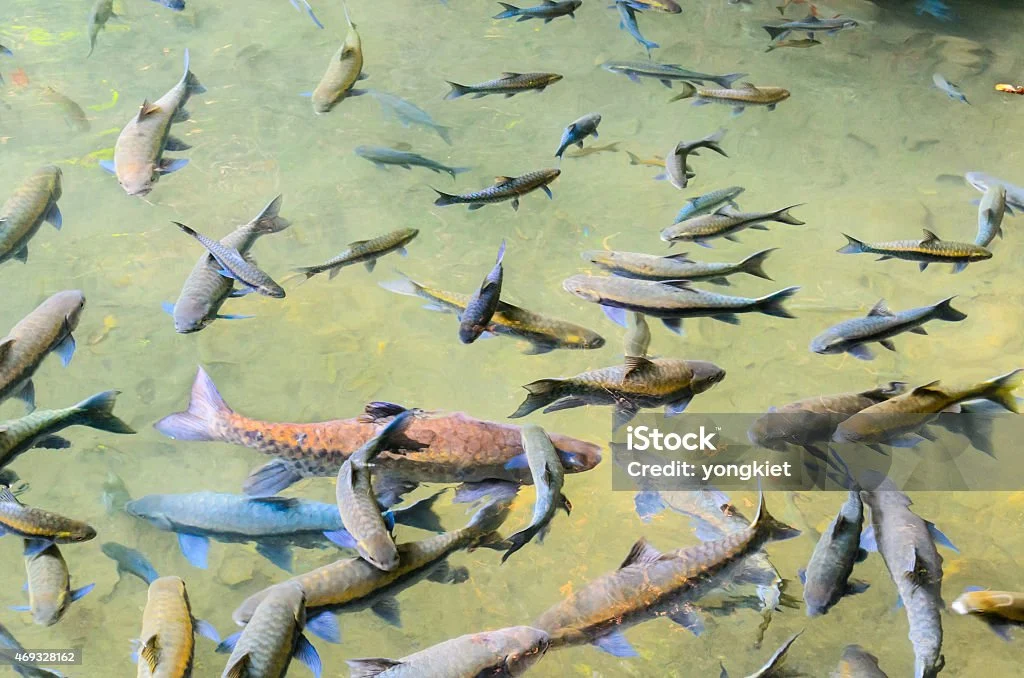Fish ban: a symbol of local wisdom and connection with nature in West Pasaman
West Pasaman, a district of West Sumatra,has enormous cultural wealth.
One example is the “Forbidden Fish” tradition, a unique and significant conservation system that is ingrained in the lives of local people. Origins and history: The tradition of prohibiting fishing in West Pasaman has existed for a long time and has been passed down from generation to generation. "Forbidden fish" literally means fish that cannot be caught.
This concept arose from public awareness of the importance of preserving natural resources,especially aquatic ecosystems.
In ancient times,the people of West Pasaman lived next to nature.
Rivers and lakes are the main source of life and provide fish as a source of protein and water for daily needs.
However,as time passes,concerns are emerging about declining fish populations. Here the tradition of forbidden fish arose. The community agrees to designate certain waters as no-fishing zones.
These places are closely monitored by the community and there are strict social sanctions for anyone who breaks the rules.
Meaning and significance: The Ikan Larangan tradition has deep meaning and meaning and represents local wisdom and the connection between society and nature.
Ecosystem Sustainability: Bananafish play an important role in maintaining aquatic ecosystems.
Due to the limited surface area,fish have the opportunity to reproduce safely to maintain the fish population,Recovery of fish stocks: Fishing bans are also an opportunity to recover fish stocks and ensure their availability for future generations.
Ethics and Morals: This tradition teaches ethical and moral values in social life.
People are taught to respect nature,live in harmony and maintain the balance of ecosystems.
Local wisdom: The Ikan Larangan tradition is clear evidence of the local wisdom of the people of West Pasaman.
This tradition allows people to use natural resources wisely,prevent overexploitation and preserve nature.
Connection with nature: this tradition also reflects the strong connection between society and nature.
Banned fish are not only a protection system,but also a reflection of the spiritual and cultural values enshrined by society.
Conservation and development: In this modern era,the tradition of Ikan Larangan in West Pasaman faces new challenges. Population growth and technological advances may endanger the preservation of this tradition.
However,the people of West Pasaman remain committed to preserving and developing this tradition.
Awareness: The community continues to provide education and outreach to the younger generation to understand the meaning and importance of the no-fishing tradition.
Cooperation between people: cooperation between people around prohibited fishing zones will be strengthened to ensure the sustainability of prohibited fishing zones. Development of sustainable tourism: The tradition of illegal fishing is also used as a potential for sustainable tourism.
Tourists can visit the fishing ban and learn about the wisdom of the local people and the importance of conservation.
The Larangan fish tradition is a very valuable cultural heritage for the people of West Pasaman.
This tradition is more than just a conservation system; This is a real testament to the wisdom of the local population and their relationship with nature.
By preserving and developing this tradition, the people of West Pasaman strive to preserve the noble values passed down from generation to generation while ensuring the preservation of natural resources for future generations.






Comments